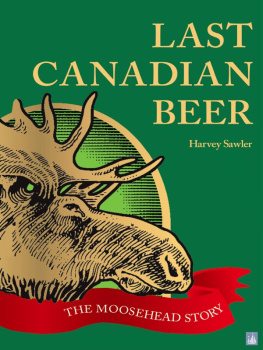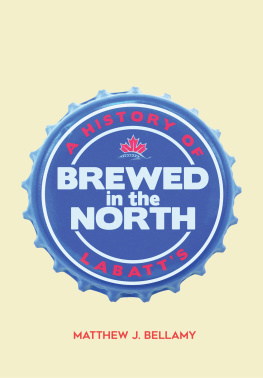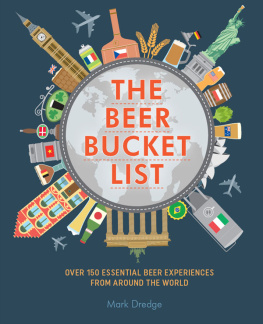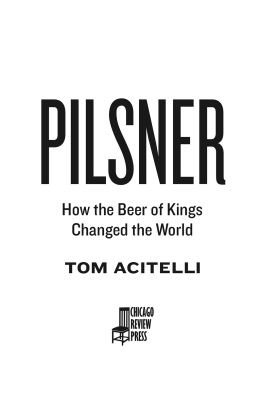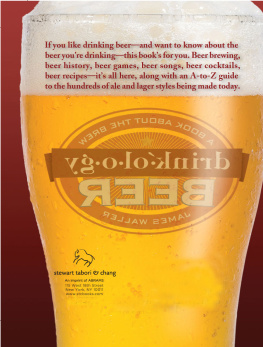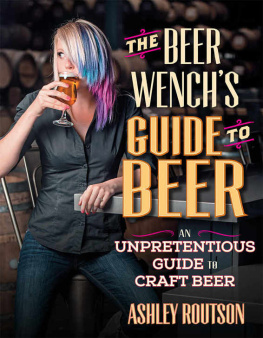Last Canadian Beer
The Moosehead Story
HARVEY SAWLER

Copyright Harvey Sawler 2009
E-book 2010
All rights reserved. No part of this book may be reproduced, stored in a retrieval system or transmitted in any form or by any means without the prior written permission from the publisher, or, in the case of photocopying or other reprographic copying, permission from Access Copyright, 1 Yonge Street, Suite 1900, Toronto, Ontario M5E 1E5.
Nimbus Publishing Limited
PO Box 9166, Halifax, NS B3K 5M8
(902) 455-4286 www.nimbus.ca
Printed and bound in Canada
Author photo: Stephen MacGillivray
Oland family and Moosehead historical photos courtesy of Jennifer Paterson and Moosehead Breweries Limited
Library and Archives Canada Cataloguing in Publication
Sawler, Harvey, 1954
Last Canadian beer : the Moosehead story / Harvey Sawler.
ISBN-13: 978-1-55109-691-9 (bound)
ISBN-13: 978-1-55109-738-1 (pbk.)
ISBN-978-1-55109-822-7 (e-book)
1. Moosehead BreweriesHistory. 2. Oland family. 3. Beer industry
CanadaHistory. 4. Brewing industryCanadaHistory. I. Title.
HD9397.C24M66 2008 338.7663420971 C2008-905679-5

We acknowledge the financial support of the Government of Canada through the Book Publishing Industry Development Program (BPIDP) and the Canada Council, and of the Province of Nova Scotia through the Department of Tourism, Culture and Heritage for our publishing activities.
For Charlotte Stewart
Contents
Part I Perseverance
Part II Independence
Part III Inheritance
Appendices
W hat goes around, comes around. In July of 1980, while working in the public relations department at the Confederation Centre of the Arts in Charlottetown, I was assigned to drive Philip Oland and his wife, Mary, from their hotel to a string of events. The couple was in town for the national meetings of the centres board of directors, the Fathers of Confederation Buildings Trust, of which Philip was a long-time member. I was only twenty-six years old, and the Olands had entered their seventies, but the distinguished fourth-generation businessman and his wife treated me with the utmost regard. He was reserved, cordial, and interested in my career. She was the more lighthearted of the two, smiling constantly as I recall. Amid the highbrow and old-money attitude associated with some of the members of the trust, I found the Olands considerations to be uncommon and refreshing. That they treated me as an equal has never left my memory.
Twenty-eight years later, fate had it that I began research on the story of Moosehead Breweries Limited and the Oland family. As I started the project, the ink was barely dry on my book about the business dynasty of another Canadian family, the Irvings, the third-richest family in Canada and 129th on the 2007 Forbes billionaires list. Writing that book, Twenty-First Century Irvings, was partly an exercise in refereeing those who are for the Irvings and those who are against them. They are an extremely controversial family (frequently referred to as the Irving empire) that always evokes strong emotions, especially from those who resent them the most: anti-capitalists, environmentalists, and those who generally feel hard done by. When a friend placed a copy of the Irving book in front of a teenaged bookstore cashier, the friend was abruptly asked, without provocation or solicitation, So are you for or against the Irvings? Such attitudes are engrained in the Maritime culture.
As I began my research and examined the Olands and the story of Moosehead, the publics widely differing perspectives on the two families became very striking. Everyone, it turns out, seems to like the Olands. As a journalist and writer intent on fairness and balance, the oft-repeated, unending platitudes toward the present-day family members concerned me. Was this a story of some legitimate value, or would it descend into a gushy tribute book? Given that both the Irvings and the Olands are based in New Brunswick (even though the Olands have deeper roots in Nova Scotia), and that both families own multi-generational family businesses, the contrast between the two families is noteworthy. From the publics point of view, it was as though Id gone from writing about the devilish Irvings to writing about the Oland angels. (Moosehead chair Derek Oland spoke to me about the Moosehead brand having a halo in the minds of many consumers.) Of course, the Olands are not angels; theyre just ordinary people with reasonably good qualities and normal foibles. And likewise, the Irvings arent devils; theyre just frequently perceived negatively.
A key difference between the two families is that the Olands were prepared to talk to me. They are naturally open and forthcoming people, while the Irvings are naturally cautious and secretive. After more than a year of trying, only J. K. Irving, the eldest son of famed Canadian industrialist K. C. Irving, finally agreed to cooperate in the development of Twenty-First Century Irvings. In contrast, getting to know the Olands was effortless. Every member of the Oland family, as well as those within their company, made him or herself accessible to me without the slightest hesitation. Access is important, since it allows the subjects to say their piece, to tell their version of the story.
When we began our first interview, Derek Oland said point-blank that he did not want to be involved in a puff piece. He has lived up to that statement in every respect; everything worth asking was open to discussion and answers. Sixty-six-year-old company CEO Bruce McCubbin, the first non-Oland to run the business, was initially a reticent interviewee who also made it clear that he did not want to be interviewed unless the book had a purpose, such as providing a message of value for other business people. The reader will be the judge of that, but after a couple of questions, McCubbin settled in and seemed to appreciate, if not enjoy, the building line of inquiry. It was as though his first tendency, an exhibit of the mutual trust he and the Olands share, was to protect the family.
This book admittedly shows the Olands and Moosehead in a positive light, because frankly, that is the way the world sees both the family and the company. Maybe it has something to do with the business theyve chosen to be in. The Irvings oil and forestry businesses invite controversyenvironmental concerns, industrialization, and the perception of them pillaging the landwhile the Olands beer company is all about social interaction, conviviality, and the sharing of happy times.
This project was not begun to record the family history of the Olands. Rather, it was to understand how a small, independent New Brunswick brewery endures in the face of multinational corporations and how it might survive the future in a competitive industry where a single digit change in market share can have serious consequences. However, following the familys history became unavoidable, for Mooseheads endurance is very much a by-product of the Oland familys storytheir hardships, their pluck, their multi-generational association with the military, their unending dedication to beer-making, their reputation, and their keen sense of independence.
The New Brunswick Olands and Moosehead Breweries are also known for many firsts: among other things, the first brewery to introduce a long neck bottle into the Maritime market and the first brewery to sell a cone-top beer can in Canada. They might also be the first (and perhaps only) family in Canada to have beer depicted in their official heraldic crest. Much more than being about the merits of these firsts, however, this book is concerned with the merits of being lastthe last family to independently own a Canadian brewery of any scale. Of the approximately 140 independent breweries in Canada when the company began in 1867 coincidentally almost at the very moment Canada was bornonly Oland-owned Moosehead remains.
Next page
